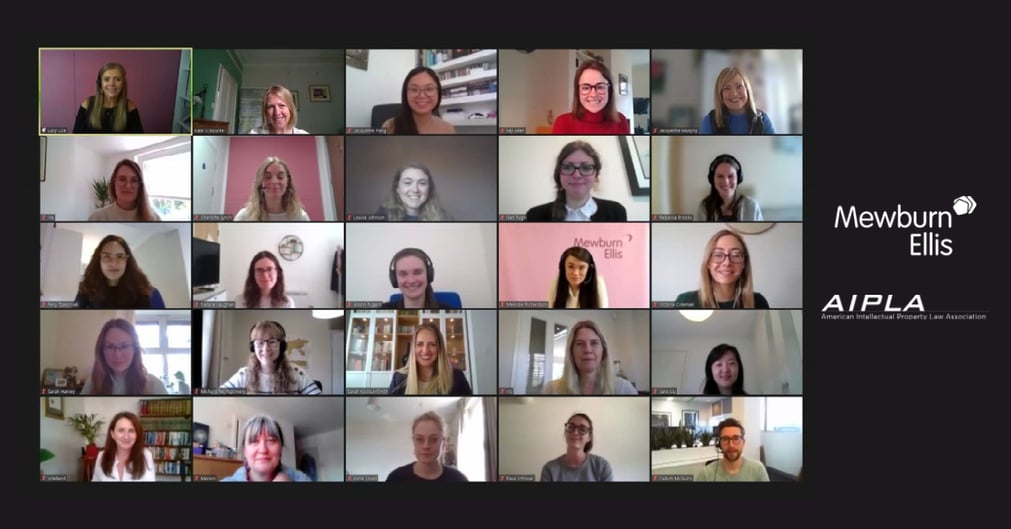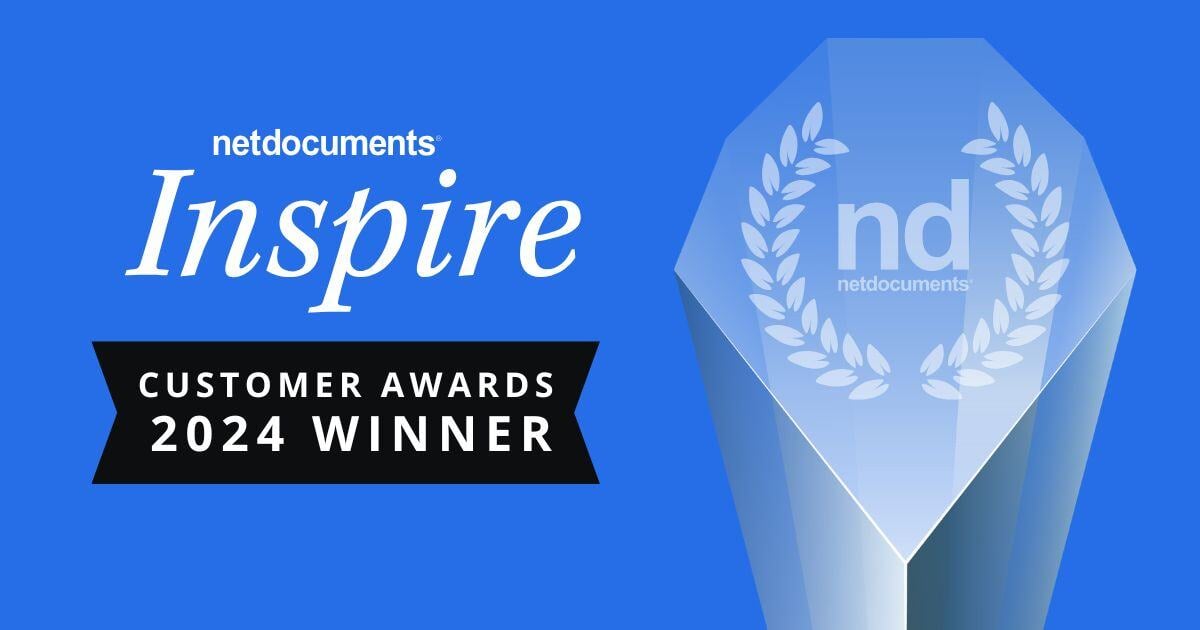
Earlier this month, on 4 May 2021, Mewburn Ellis was delighted to host one of the American Intellectual Property Law Association (AIPLA) Women in IP Global Networking Events. The Mewburn Ellis event was one of almost 30 events hosted worldwide, including in the US, Chile, Israel, Canada, France, Italy, China, Thailand and Malaysia, but one of only two events hosted in the UK.
The virtual event was based on Michelle Obama’s book “Becoming” and focussed on some of the themes in the book that are particularly relevant to women in intellectual property – Michelle Obama herself was an intellectual property lawyer!
The event began with a Welcome and Introduction session hosted by AIPLA, including one of our partners and event co-chair Sarah Kostiuk-Smith. In that session the hosts and attendees of the many global events came together to share the themes we would be discussing. There was even a message from the Office of Barack and Michelle Obama, which highlighted how important it is to keep discussing the themes behind the book “Becoming”.
The Mewburn Ellis event focussed on the theme Optimism, Growth and Fulfilment, and in particular how we can feel fulfilled in the workplace at all stages of our career. We hosted a roundtable panel discussion with women working at Mewburn Ellis at different stages of their career; Charlotte Lynch, a first year Trainee, Lucy Coe, an Associate five years into their IP career, Sarah Kostiuk-Smith, a Partner who has recently returned to work following maternity leave, and Kate O'Rourke, a Partner with over 30 years’ IP experience. Here are some of the key takeaways from the discussion and a follow up survey completed by participants:
- Having good relationships at work is fundamental for feeling fulfilled regardless of the stage we are at in our careers
For trainees just starting in the profession, it is important to have the support of peers who are going through the same process together, but interestingly this doesn’t seem to change as you become more experienced. The consensus was that having the support and respect of your team and your peers is vital throughout your whole career. - Part homeworking is likely to have a different effect on optimism, growth and fulfilment for different people
More junior colleagues considered homeworking could lead to feeling less fulfilled in the workplace, in particular because it is more difficult to build working relationships and so you may feel less included in a team. They also thought career progression may be affected if you are not “seen” in the office. In contrast, the flexibility of homeworking it was noted that virtual events may provide more inclusivity, in particular for those who have a caring responsibility such as childcare, as people might be more able to attend a virtual event which doesn’t require lengthy travel time. Additionally, homeworking provides more time which would otherwise be spent commuting on finding fulfilment outside work through hobbies or exercise, for example. Everyone agreed that a fulfilling compromise might be a blended approach where the individual can nominate to at least some degree their preferred office/home working location. - More senior colleagues can maintain optimism, growth and fulfilment in the later stages of their careers by increasing the diversity of their role
In the early stages of our careers we might be optimistic about our career growth through career progression and promotions, but after we have achieved our goals (e.g. of becoming a Partner) it is important to continue to learn and stretch ourselves in different ways. For example, becoming involved in training can provide fulfilment as you watch your trainee’s career progression. Alternatively, being involved in internal or external committees or organisations might provide the opportunity to share transferrable skills developed during one’s career and also provide a feeling of personal fulfilment. - “Personal fulfilment is a marathon not a sprint.”
Some interesting advice was to not focus on short-term happiness when considering career fulfilment, but instead to consider our career satisfaction over the course of months or years. There will always be stressful or “bad days” at work, but what is important is to focus on whether we are intrinsically motivated and content in our careers in the longer term.
Following the roundtable session, the discussion was opened to everyone in breakout rooms where the conversations generally focussed on the effects of the Covid-19 pandemic on our fulfilment. What was quite clear from these conversations is that the effect the Covid-19 pandemic has had on our optimism, growth and fulfilment is different for everyone. Based on those discussions and our follow up survey, there was no clear consensus of whether the Covid-19 pandemic has made the respondents feel more, or less happy at work - the responses were fairly equally spread across the options of “More happy”, “Equally happy” and “Less happy”. This was supported by conversations in the breakout rooms, where it was highlighted that although the majority agree that relationships at work are of vital importance for feeling fulfilled, some people prefer impromptu in-person conversations with colleagues in the kitchen or spontaneous after-work drinks, whereas others prefer organised activities over video call, such as crafts, yoga, or quizzes, where everyone has a joint interest in common. It really depends on the individual.
Nevertheless, what is quite clear from the survey is that the conversation of how we can feel fulfilled at work is incredibly important – every single respondent rated the importance of having discussions about optimism, growth and fulfilment at work as either “Very Important” or “Moderately Important”, with 75% of respondents considering these conversations to be “Very Important”. We must then continue these conversations with colleagues and friends so that we can all thrive, have purpose in our role, and ultimately feel happy at work.

Lucy is an experienced UK and European Patent Attorney and UPC representative specialising in physics and software, and with a specific focus on contentious work and litigation. Her deep knowledge and expertise in the vast array of options for challenging patents in Europe allows Lucy to advise her clients on a pan-European patent litigation strategy, centred on balancing the options available to achieve their commercial goals.
Email: lucy.coe@mewburn.com
Sign up to our newsletter: Forward - news, insights and features
Our people
Our IP specialists work at all stage of the IP life cycle and provide strategic advice about patent, trade mark and registered designs, as well as any IP-related disputes and legal and commercial requirements.
Our peopleContact Us
We have an easily-accessible office in central London, as well as a number of regional offices throughout the UK and an office in Munich, Germany. We’d love to hear from you, so please get in touch.
Get in touch

